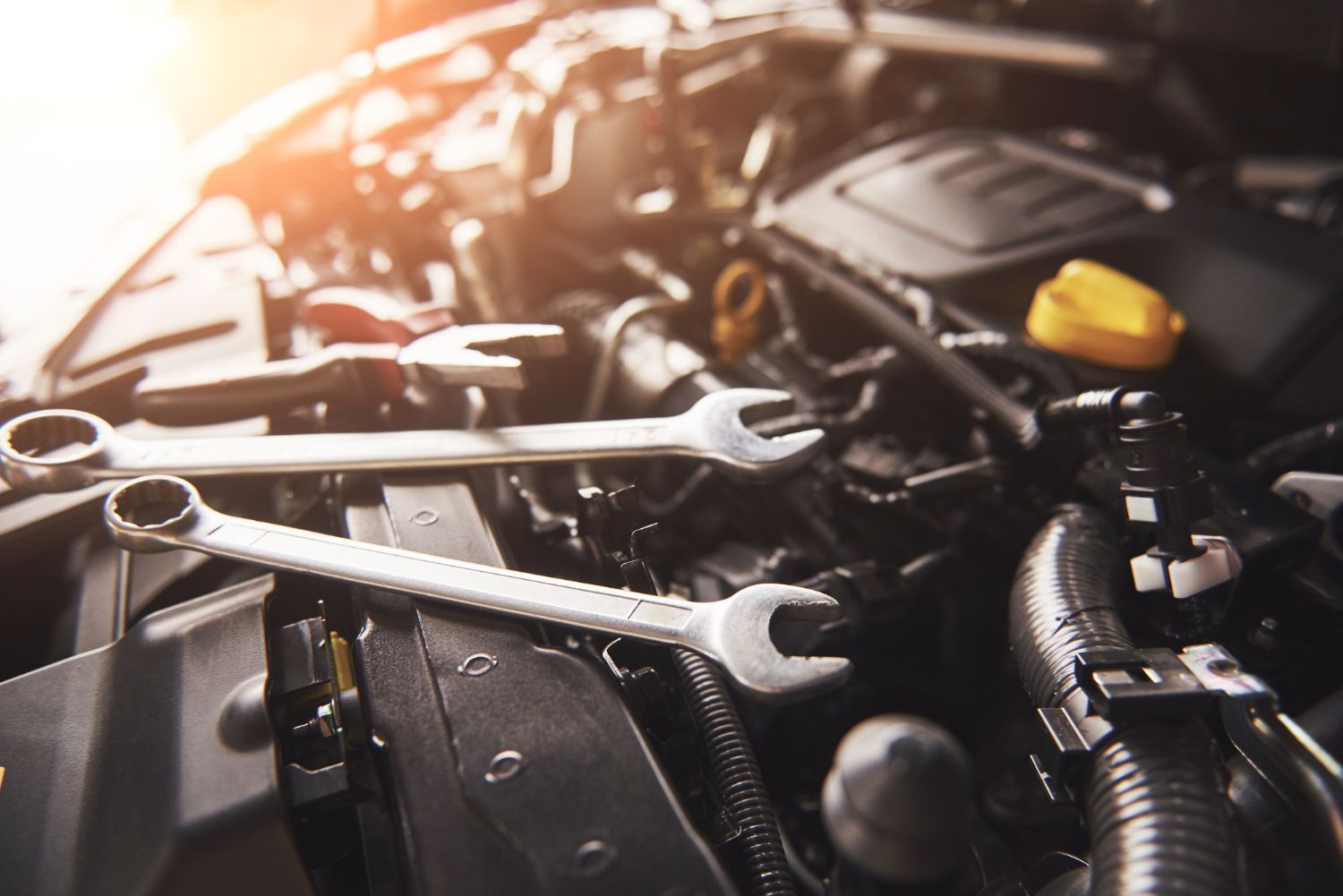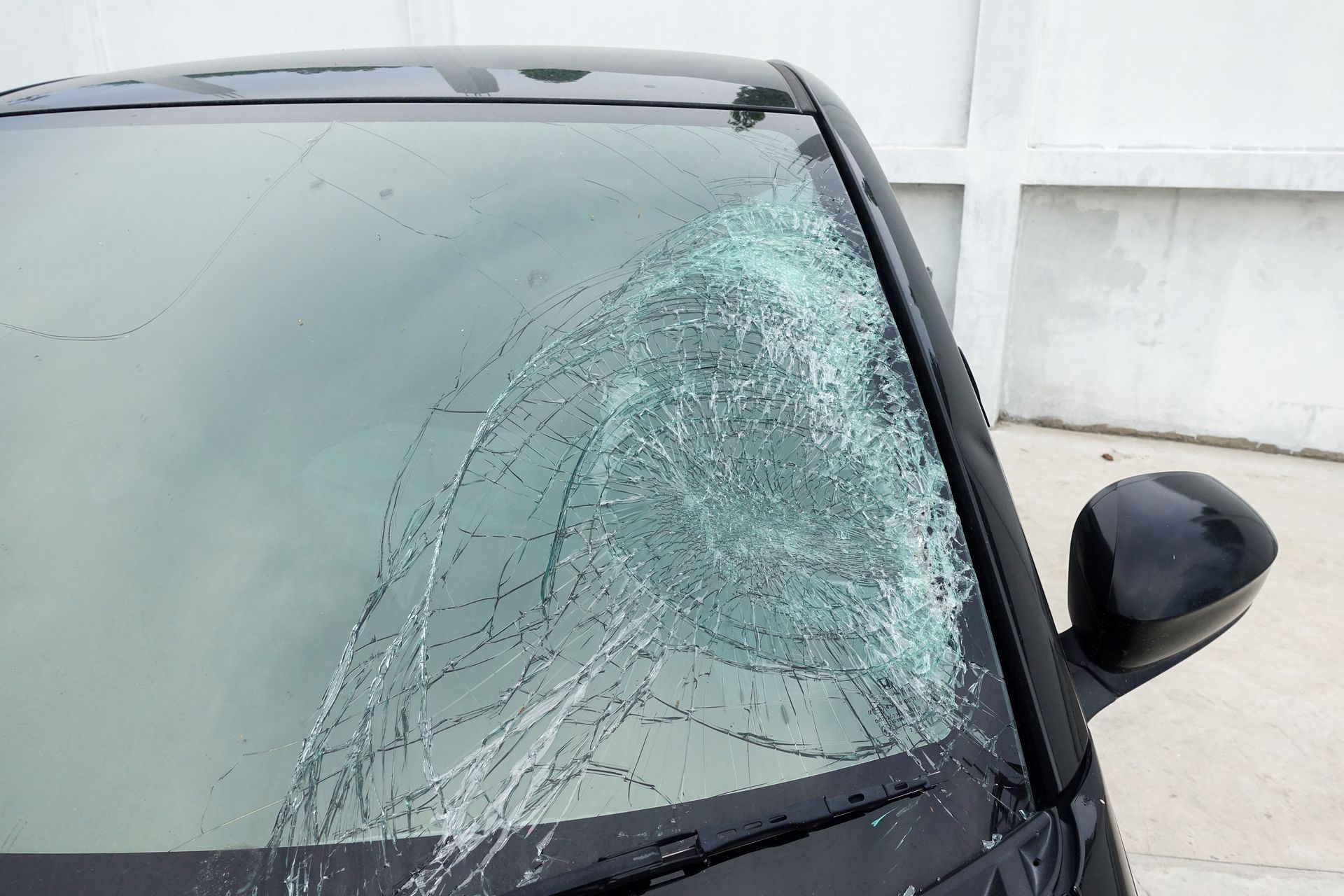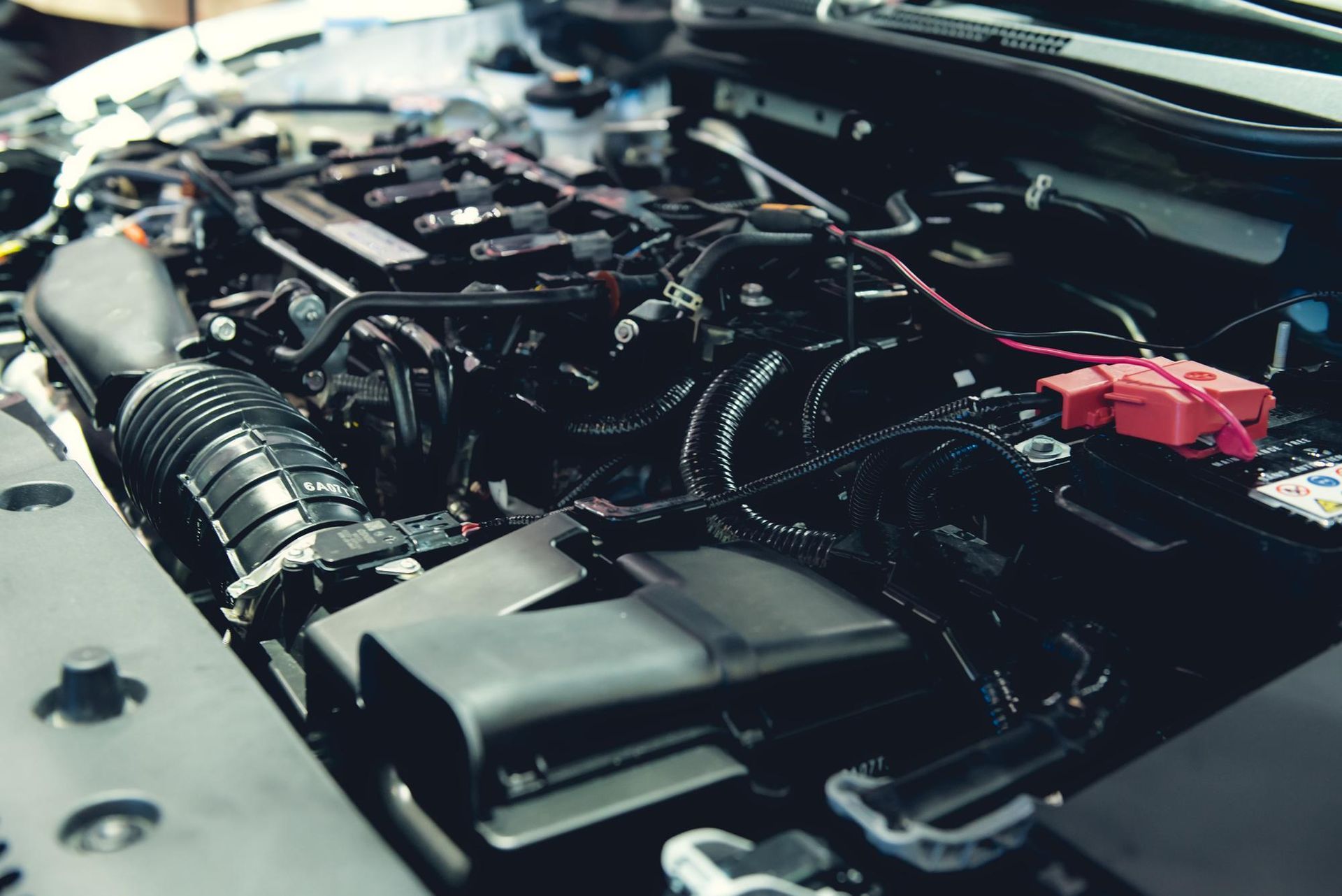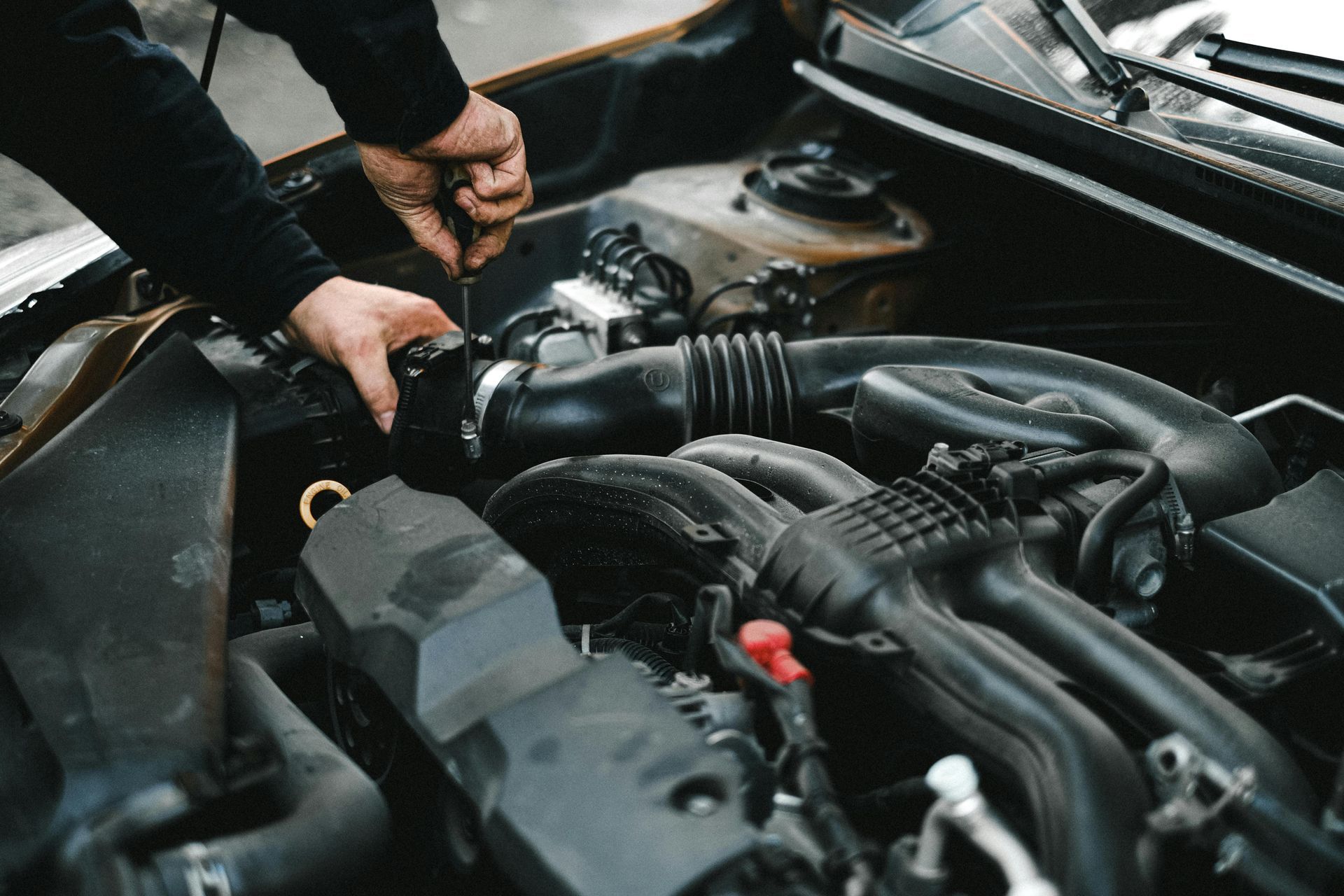Car Repair and Maintenance: Essential Tips for a Smooth-Running Vehicle
To keep your car running well, focus on more than just performance. It's also crucial for safety, dependability, and saving money over time. Whether you're commuting daily or heading out on a long road trip, car repair and maintenance should be a top priority for every driver. At
Paul’s Transmission & Auto Repair in Baker City, OR, we’ve seen firsthand how preventive maintenance and timely repairs can extend the life of your car and reduce costly breakdowns.
In this article, we’ll explore key car repair and maintenance tips to help your vehicle run smoothly year-round. From routine oil changes to checking your brakes, these essential practices can make all the difference in keeping your car dependable and efficient.
1. Stick to a Regular Car Maintenance Schedule
Your vehicle is made up of thousands of moving parts, each requiring periodic attention. Following the manufacturer’s recommended maintenance schedule is one of the best ways to prevent major issues.
Typical routine services include:
- Oil and filter changes
- Fluid level checks and top-offs
- Tire rotations and alignments
- Air filter replacements
- Timing belt inspections
When these services are performed regularly, your vehicle is less likely to suffer from engine strain or unexpected breakdowns. At Paul’s Transmission & Auto Repair, we help Baker City drivers stay on schedule with convenient, reliable service reminders and trusted care.
It’s also smart to keep a log of services performed. Not only does it keep you informed, but it adds value to your vehicle when it's time to sell or trade it in. Buyers love well-documented maintenance histories, as they show the car has been properly cared for.
2. Pay Attention to Warning Lights and Unusual Sounds
Modern vehicles are equipped with a range of sensors designed to alert you when something isn’t right. Unfortunately, many drivers ignore dashboard warning lights until it’s too late. Whether it’s a check engine light, low oil pressure, or battery alert, act promptly.
In addition, be on the lookout (or listen) for strange sounds:
- Squealing brakes could mean worn-out pads.
- Grinding or whining might signal transmission problems.
- Knocking under the hood could indicate engine issues.
If you notice any of these signs, bring your vehicle into Paul’s Transmission & Auto Repair for a full diagnostic check. Early detection can save you from extensive and expensive car repair and maintenance needs later.
Unusual vehicle behavior should never be overlooked. Hesitating, surging, or difficulty starting could be signs that your ignition system, fuel injectors, or even alternator is malfunctioning.
3. Keep Your Tires in Good Shape
Tires are your vehicle’s only connection to the road. Yet, they’re often overlooked until a flat or blowout occurs. Proper tire care not only ensures safety but also improves fuel efficiency and overall handling.
Here’s how to maintain your tires:
- Check tire pressure monthly (and before long trips)
- Rotate your tires every 5,000 to 7,500 miles
- Inspect tread depth and wear patterns
- Replace tires as needed
Underinflated or worn-out tires can strain your engine and increase fuel consumption. Uneven wear can also indicate alignment or suspension issues, which are best addressed early. At Paul’s Transmission & Auto Repair, we inspect and service tires to keep you safe on the roads of Baker City and beyond.
We also help you choose the right tire type for the local climate. In Oregon, seasonal tires or all-weather tires can make a significant difference in traction and safety throughout the year.
4. Don’t Skip Brake Inspections
Your car's brakes are among its most important safety features. Any delay in addressing brake issues can put you and your passengers at serious risk.
Signs your brakes need attention include:
- A spongy or soft brake pedal
- Squeaking, grinding, or metal-on-metal noises
- A burning smell when braking
- The vehicle pulls to one side when stopping
Routine brake inspections as part of your overall car maintenance plan ensure that components like pads, rotors, and fluid levels are all in good shape. Brake fluid also degrades over time and may need replacement every few years to maintain proper pressure.
Our expert technicians at Paul’s Transmission & Auto Repair can help you catch problems early and restore stopping power quickly and safely.
5. Transmission Services Are Crucial for Longevity
The transmission is the heart of your vehicle’s drivetrain. Without proper care, transmission problems can develop gradually, and when left unchecked, they’re among the most expensive car repair issues to fix.
To keep your transmission in top condition:
- Check fluid levels and color regularly
- Flush and replace transmission fluid every 30,000–60,000 miles
- Watch for slipping gears, slow shifting, or fluid leaks
As Baker City’s trusted transmission experts, Paul’s Transmission & Auto Repair specializes in both automatic and manual transmission services. Whether it’s routine maintenance or full rebuilds, we’ve got your back.
A well-maintained transmission also helps with fuel efficiency and reduces stress on your engine. Don't wait for a transmission failure—schedule an inspection with our team if you suspect even the slightest issue.
Get Your Vehicle Running Smoothly Today with Paul’s Transmission & Auto Repair
When it comes to reliable
car repair and maintenance, experience matters. At
Paul’s Transmission & Auto Repair, we bring decades of trusted service to the Baker City community. From quick oil changes to complex transmission work, our certified technicians are here to keep your vehicle in peak condition.
We know your vehicle is a vital part of your daily routine. That’s why we treat every job with the same care and attention to detail—whether it’s a routine tune-up or a major repair. You can count on us for honest advice, fair pricing, and fast turnaround times.
Ready to schedule service or have questions about your vehicle? Call us today at
(541) 523-6923. Whether it’s a
diesel repair,
car diagnostics,
oil change, or
windshield replacement, we’re here to get you back on the road quickly and safely.
FAQs
How frequently should I change my car's oil?
Most vehicles require an oil change every 3,000 to 5,000 miles, though some newer models can go up to 7,500 miles. Always check your owner's manual or consult with our team for guidance based on your driving habits.
Why is my check engine light on?
The check engine light can indicate a range of problems, from something as simple as a loose gas cap to more significant engine or emissions issues. A diagnostic test at our shop can pinpoint the exact cause.
When should I replace my brake pads?
Brake pads typically need replacing every 25,000 to 70,000 miles, depending on driving conditions. If you hear squeaking or grinding, it’s time to get them checked.
How can I tell if my transmission needs service?
Common signs include gear slipping, delayed shifting, or leaking red/pink fluid. If you notice any of these, visit Paul’s Transmission & Auto Repair as soon as possible.
What’s the benefit of regular car maintenance?
Routine maintenance helps prevent costly repairs, improves fuel efficiency, and ensures a safe, reliable ride. It also protects your investment and prolongs the life of your car.












